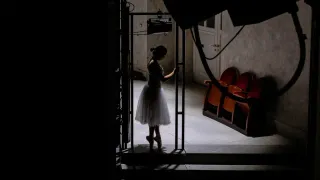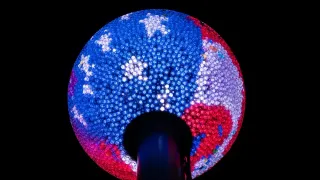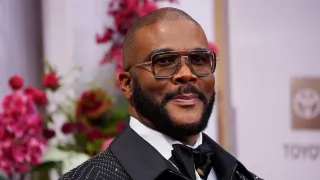February 5, 2024
Compromised Spaces: Sundance 2024
C.J. Prince READ TIME: 10 MIN.
In the narrative strands of the festival, several disappointing U.S. films highlighted the shortcomings of Sundance as an institution. The festival's 40th anniversary corresponds to when the Sundance Institute, a non-profit founded by Robert Redford that supports independent artists, took over the festival, and like any other year many of the titles premiering were recipients of Sundance Institute grants, or were developed within the Institute. Two of these films are "In the Summers" and "Dìdi (弟弟)," which respectively took home the festival's Grand Jury Prize and Audience Award for the U.S. Dramatic competition. Both films are coming-of-age stories described as "personal" works, and both films lean on specificity: "In the Summers" follows two siblings visiting their father over the years for their summer vacations, while "Dìdi (弟弟)" observes its pre-teen, Taiwanese-American protagonist trying to fit in with different social groups over the summer before he starts high school.
Both films have the potential to be strong, evocative works, but get packaged into conventional plot and narrative developments that feel like the result of going through a development lab. "In the Summers" director Alessandra Lacorazza establishes a structure that drops in every several years on sisters Violeta and Eva as they grow into adults and gradually come to terms with their father's issues around addiction and abuse. Lacorazza unfortunately makes each section too self-contained so that her characters have all the right formative moments occur with each visit, and any changes that occur between summers get established within the first several minutes of each new chapter. As much as we'd like to believe our lives can unfold within major, discrete moments, it's rarely the case, and the narrative economy of "In the Summers" sands off the edges of Lacorazza's experiences into something palatable but not especially interesting.
While "Dìdi (弟弟)" sets itself up with a distinctive family dynamic, director Sean Wang largely operates in broad strokes when it comes to plot and execution. Set in 2008, 13-year-old Chris (Izaac Wang) spends his summer days getting up to no good with his friends, while his older sister (Shirley Chen) prepares to go off to college and his mother (Joan Chen) raises them with the nagging presence of her mother-in-law (Chang Li Hua), as Chris' father isn't around due to still working in Taiwan. Wang uses the 2008 setting to immediately throw up as many nostalgic signposts as possible, whether it's MySpace profiles or Chris using AOL Instant Messenger, and all of these pop culture artifacts get recreated with full accuracy. That might have worked better if Wang's screenplay wasn't so rote in deploying the hallmarks of a coming-of-age story. Over the course of "Dìdi (弟弟)," Chris repeatedly changes his personality in an attempt to get a girlfriend and impress potential new friends as he prepares for high school. It's a case of wash/rinse/repeat, with Chris lying about himself only to get caught later on until he realizes he should just be himself. It's all been-there-done-that, with the film taking plenty of inspiration from Bo Burnham's "Eighth Grade" to the point of lacking much originality in tackling its themes. The film's only exception, and its saving grace, is Joan Chen's performance as Chris' mother. Her ability to imbue her character with depth and melancholy, as she's constantly plagued by the life she could have had as a painter instead of choosing motherhood, speaks to her talents given how underwritten her character is, as she's largely a punching bag for her children and mother-in-law.
There was a strong presence of queer subject matter in the U.S. Dramatic Competition this year, but the most effective works came from unexpected places. "Ponyboi," an expansion of the 2019 short film by writer and lead River Gallo, disappointed in its shallow genre exercise of tossing an intersex character within the confines of a bad crime thriller, while Theda Hammell's insufferable parade of narcissism called "Stress Positions" provided the kind of self-aware takedown of Brooklynites that can only come out of Brooklyn. The highlight of the U.S. Dramatic Competition, and easily the best thing I saw at Sundance this year, was Nathan Silver's "Between the Temples," where cantor Ben (Jason Schwartzman) still can't sing over a year after the tragic death of his wife. Circumstances cause Ben to cross paths with Carla (Carol Kane), his childhood music teacher, and Carla forces Ben to mentor her so she can finally have her bat mitzvah, something that was denied to her as a child due to her parents being communists (or so she claims). It's an odd couple pairing that Silver directs as a blend of screwball, romantic comedy, and spiritual drama to great effect. Silver and co-writer C. Mason Wells' screenplay unintentionally becomes a representative for the kind of great comedy and joke writing that's more commonly seen on television today, while the ensemble cast is perfect in their roles (Kane and Schwartzman are the MVPs, but it's worth mentioning Robert Smigel as Ben's rabbi and Dolly De Leon as one of Ben's moms). Silver, whose films up to this point have been more caustic, finds a sweet spot here in his story of an unconventional romance, where damaged people find grace through each other.
Finally, of the 19 or so features I watched from this year's festival, the one title that felt like a genuine arrival of a new, promising talent was India Donaldson's "Good One." A directorial debut that's so subdued it might fly over people's heads entirely, it's an accomplished story of a teenage girl at a crossroads with her father that might also be one of the low-key best queer films of the year. Newcomer Lily Collias plays Sam, who's about to go on a traditional camping trip in the Catskills with her father Chris (James Le Gros), his longtime friend Matt (Danny McCarthy), and Matt's teenaged son. Matt's son drops out of the trip at the last minute, leaving Sam to spend the next several days with her father and Matt, and over the course of the hike various tensions bubble to the surface, revealing more about the dynamic between Chris and Matt and how much Sam is an outsider to it.
Early on, when the three make a pit stop at a gas station, Chris and Matt bicker at the register while the female cashier and Sam cast knowing glances at each other. It's a quick moment that encapsulates what Donaldson's aims are, namely the unspoken ways that people use to communicate with each other. The film's opening section shows that Sam is openly queer, and while Chris has no issue with it, it's evident in his interactions with Matt that his traditional, insecure masculinity lacks the kind of awareness that Sam has in spades. Donaldson doesn't go out of her way to underline any of these elements; her screenplay develops these ideas organically within the narrative, and her precise direction lets the tension of what's between the lines gradually build. Anyone who's found themselves in a situation like Sam's, where you're forced to navigate an environment and dynamic that's alien to you (whether it's hypermasculine, heteronormative, or something else), where you see the stark, irreconcilable differences between you and your loved ones, or the realization of having to build your own path forward should find plenty to relate to with "Good One." Donaldson's ability to pull this off with her level of restraint and assuredness behind the camera immediately makes her a new feature filmmaker worth keeping an eye on.






